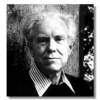Elliott Carter

Elliott Carter
Elliott Cook Carter, Jr.was an American composer who was twice awarded the Pulitzer Prize. He studied with Nadia Boulanger in Paris in the 1930s, then returned to the United States. After an early neoclassical phase, his style shifted to an emphasis on atonality and rhythmic complexity. His compositions are known and performed throughout the world; they include orchestral, chamber music, solo instrumental, and vocal works...
NationalityAmerican
ProfessionComposer
Date of Birth11 December 1908
CountryUnited States of America
The idea of counterpoint for instance is something that has invaded my music and very few people to date can write counterpoint.
The Royal Festival Hall, I don't know whether it was 80 or 70, gave a whole festival of my music there with orchestra and everything. String quartets.
Even I wrote it when I first started to compose after I left Paris. I wrote pieces that were comparatively accessible and easy to understand.
My musical life started with hearing and being fascinated by contemporary music.
The Quartets have been a major part of my work.
Right at the end of the war I wrote a piano sonata, which was written at a time when Sam Barber used to come down here and we used to have lunch together in a very nice old hotel that's now not there.
Silences between movements are employed only in order to bring the opposing duo to the fore.
My entire life has really revolved around music that was written about the time that I was born, 1908, to just before the First World War and shortly after it. This music I've always known, and it is that music that's most important to me.
Since I'm allergic to various things, the army wouldn't accept me during the war, and I got into the Office of War Information, which sent music to Europe.
When I was in Paris, all of the German refugees began to flow in and it was a very sad time.
Then, when the Depression came, all of this changed completely. Since that time, the entire public is of a very different sort and there was not so much support for contemporary music in a direct way.
It was only later on that I became more interested in older music.
These wealthy people were very interested in contemporary music. They wanted to help diffuse it and get it to be known to other people.
I mean the public likes it more in Europe than they do here because the state supported organizations have felt that playing contemporary music was part of the education of the public.